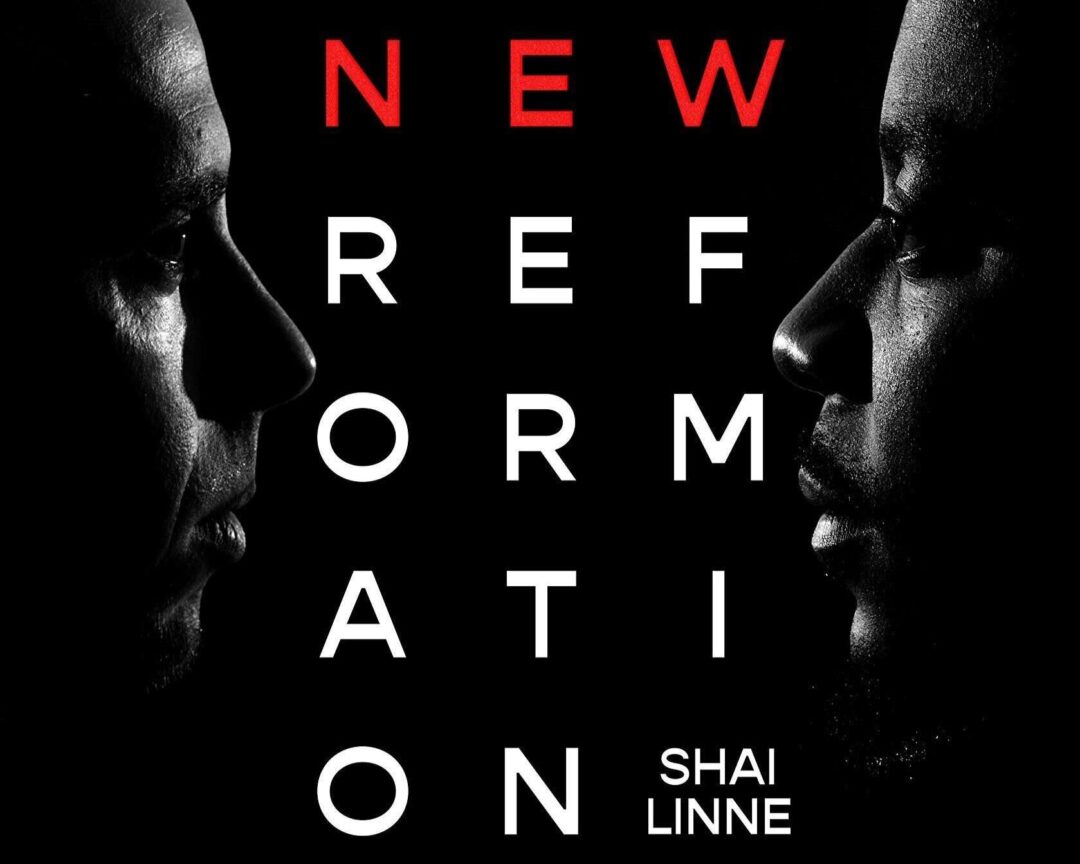American Christians are embroiled in a controversy right now. Some leaders are likening this to the threat of liberalism in the days of J. Gresham Machen. Others argue that this is a time to get “woke” and fight the supremacy and powers behind the social injustice in our society as well as the church. Though Christian books on CRT, racism, and social justice are beginning to slowly trickle down to the popular level, labels and accusations are being speedily hurled at outspoken leaders and organizations. The labels are broad—you’re either supporting white supremacy or you’re woke partners in the Critical Social Justice movement.
There seems to be no middle ground.
Some leaders in this discussion have decided to draw lines in the sand, stating that their opponents’ views compromise the gospel. Others have urged that we abandon such either/or thinking on these matters in favor of a more nuanced approach. Rather than opting for a position on either side of the political spectrum, they are calling for a more biblical approach that seeks unity with our brothers and sisters when there is disagreement on the extent of racism in America today.
Winsome Dialogue
In The New Reformation (Chicago: Moody, 2021), Shai Linne does this with excellence. Rather than toe party lines, he strikes a balance of being both biblical and sociological in a way that is convicting, encouraging, and winsome. Shai knows the weightiness of words and aims to guard against any unnecessary association with social justice buzzwords, like the word “race.” He says:
Another thing you’ll notice is that when I speak of race and racism, I put them in quotation marks. This is not because I don’t believe racism exists, but rather because those terms are loaded with unbiblical assumptions about anthropology. This may seem audacious, but I believe that a big step in addressing this issue is changing how we talk about it. Words matter. The terminology we choose can either be helpful or harmful to promoting understanding and effective communication. (16)
Another strength of The New Reformation is that Shai goes back into history to show the wicked and unbiblical stances on race some in the church have held. He mentions the failures of men like Jonathan Edwards, George Whitefield, James P. Boyce, the founders of the Southern Baptist Convention, and others. Yet he refuses to write off men like Edwards because he finds his heart warmed at the magnificence of Christ in his writings and service to the church. He strives to hope and believe all things (1 Corinthians 13:7).
Consistently Humble
From the beginning of the book, Shai humbly admits, “I’m not writing as a scholar, and I don’t consider myself to be an expert on this topic. I’m a fellow learner sharing some of my observations” (16). As he shares his life story in the early chapters, we get a glimpse of a man impacted by secular black intellectuals, and he honestly discusses his own temptation of placing his identity more in his blackness than his Christ-ness. He’s clear that in these moments, he’s getting things “terribly backward.” (192).
Shai doesn’t claim to have all the answers or get everything right. He doesn’t give the sense that only he and those who agree with him are on solid ground while all others are standing on a fault line destined to fall through. He makes it clear that there is a benefit from believers past and present who not only disagree with him but have failed tremendously in the specific area of ethnic partiality.
He further exudes humility in reliance on Scripture and church history to guide the way in understanding and calling Christians to partake in a new reformation. He’s not arguing against the Reformation of the sixteenth century, but he is hearkening back to Martin Luther as he calls for an re-emphasis on the five Solas in this conversation. Shai is no renegade maverick trying to peddle Critical Social Justice in the church. Rather, he’s the Soli Deo Gloria Fella calling us back to the principles of the Protestant Reformation that he has rapped about for nearly 20 years. He’s standing on the shoulders of those who came before him.
We should expect nothing less from the lowercase emcee.
Undeniably Biblical
Like all of his music, Shai’s vision and purpose for The New Reformation stems from Scripture. Rather than combing the “new canon” of social justice books, he starts with Jesus’ High Priestly prayer in John 17:21–23 and ends with the glorious vision of a united and diverse church found in Revelation 7:9–10.
From Scripture—through a short biblical theology of ethnicity—Shai explains a lot. He shows us that:
-
“Ethnicity” is a more appropriate term than “race” in this conversation because we actually find ethnos in the Greek New Testament and Septuagint. In contrast, race isn’t a biblical category, and it is often defined with unbiblical assumptions in mind.
-
Instead of racism, then, we actually see ethnic hatred, ethnic pride, ethnic partiality, ethnic oppression, ethnic idolatry, and ethnic neglect all condemned in various passages of Scripture. In other words, we don’t have to go outside of the Bible to discuss these matters because Scripture clearly addresses them.
-
Christ-centered unity must be our focus because “any unity that is not of God will ultimately be thwarted by God. Unity that is of God will be blessed by God” (120). Jesus didn’t die for only one ethnic group, and it’s through HIs radical life and death that we pursue unity.
-
Ethnicity is truly meaningful, but it must neither supersede our gospel identity nor be ignored. We shouldn’t profess or aim to be colorblind, either. God fearfully and wonderfully made us in our skin tones and ethnicities, and we shouldn’t downplay that. We must guard again exalting our skin tone—or lack thereof—over and against those who differ from us.
-
Justification by grace through faith should draw us to address ethnic sin in the church, acknowledge it in our lives, forgive others for their ethnic sin, call out ethnic sin in our camp, and find our ultimate identity in Christ.
Personally Practical
Practically, Shai calls for the unity Christ prayed for in John 17. This oneness is not based on skin color, political interest, denominational affiliation, or any other earthly category. It is ultimately rooted in our union with the triune God, and our gospel union with Christ carries with it an evangelistic zeal to reach a lost and dying world around us with the gospel that unites us.
Using numerous Scriptures and practical examples, Shai gives us practical and tangible ways to pursue biblical unity across ethnic lines. The last section of the book is precisely what we need in this cultural moment. He points out the reality of conflict in Scripture while showing us how to handle it biblically. There are clear exhortations on how to:
-
Pursue biblical affection and sympathy
-
Display the fruit of the Spirit
-
Keep the gospel central
-
Pursue unity with those who disagree with us
-
Assume the best in others
-
Enter others’ worlds
-
Deal graciously with the faults of others
-
Persevere in the fight for unity
-
Remember Jesus
The Right Book at the Right Time
This book came at just the right time. Though controversy sells, living in light of Scripture will prove to be of greater value. In a day when pressures from every direction call us to choose a side, Shai calls us to look at God’s Word and live out the two greatest commandments—love God and love your neighbor. We can’t do this without the gospel. This doesn’t mean finding racism in every situation, nor does it require leaving white evangelical spaces. It also doesn’t mean denying that there are genuine ethnic sins presently in America or downplaying our brothers’ and sisters’ experiences. It means taking an honest look at God and His word, searching ourselves to see if we have a plank in our eyes, and graciously helping our brothers and sisters remove the specks they may have in their own eyes. Ultimately, our unity is focused on the glory of God, and The New Reformation aims to point believers and unbelievers to our glorious God and Savior.
Prayer Requests:
- Father, remind us of our unworthiness and your gracious adoption into your one family. Stir us constantly to find our identity more in our adoption as Your children than in our ethnicity or skin tone.
- Jesus, give us the desire for unity you prayed about in your high priestly prayer. Let it drive our words and actions.
- Holy Spirit, bear your fruit in us as we strive for biblical unity that is only possible through the gospel.












